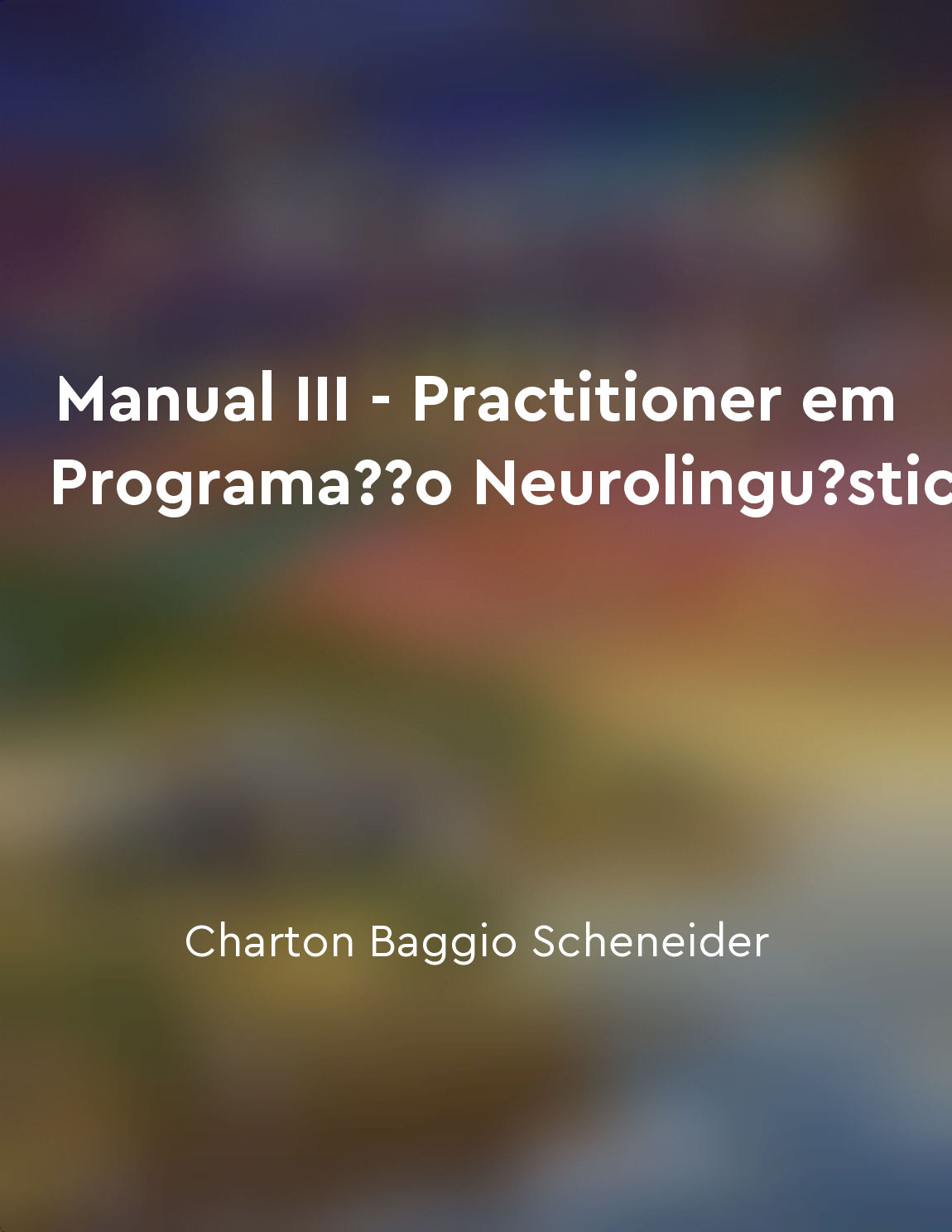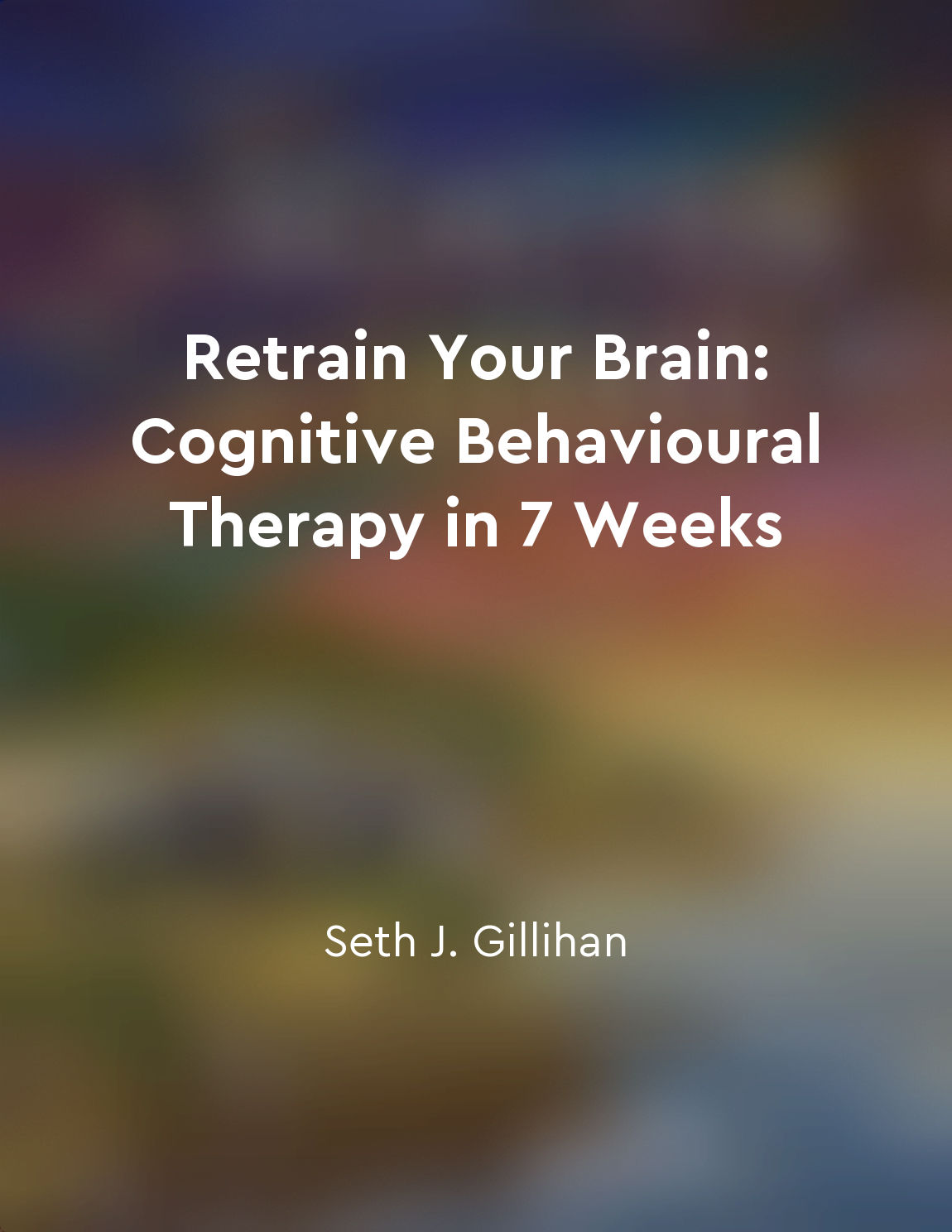Audio available in app
Cognitive restructuring helps individuals develop more realistic perspectives from "summary" of Cognitive Therapy of Anxiety Disorders by David A. Clark,Aaron T. Beck
Cognitive restructuring is a key component of cognitive therapy that aims to help individuals challenge and change their negative thought patterns. By identifying and evaluating the accuracy of their beliefs, individuals can develop more realistic perspectives on their experiences. This process involves examining the evidence for and against their automatic thoughts, as well as considering alternative explanations for their interpretations. Through cognitive restructuring, individuals can learn to recognize cognitive distortions such as overgeneralization, catastrophizing, and black-and-white thinking. By challenging these distortions, they can begin to see situations in a more balanced and objective light. This shift in perspective can lead to reduced anxiety and improved emotional well-being. One of the goals of cognitive restructuring is to help individuals understand the connection between their thoughts, emotions, and behaviors. By recognizing how their negative thoughts contribute to feelings of anxiety, individuals can learn to interrupt this cycle and replace unhelpful thoughts with more adaptive ones. This process empowers individuals to take control of their thinking patterns and reduce their vulnerability to anxiety. In addition to developing more realistic perspectives, cognitive restructuring can also help individuals build resilience in the face of future stressors. By learning to challenge and change their negative thought patterns, individuals can develop the skills needed to cope with anxiety-provoking situations more effectively. This can lead to increased confidence and self-efficacy in managing anxiety in the long term.- Cognitive restructuring is a valuable tool for helping individuals with anxiety disorders develop more balanced and realistic perspectives. By challenging their negative thought patterns and replacing them with more adaptive beliefs, individuals can reduce their anxiety and improve their overall quality of life.
Similar Posts

Introduction to the concepts of Neurolinguistic Programming
Neurolinguistic Programming (NLP) is a powerful tool that can be used to improve communication, change behavior, and achieve pe...

Remember that progress takes time
It is crucial to bear in mind that progress does not happen overnight when it comes to overcoming social anxiety. This is a jou...
Engage in activities that bring you joy
When you are feeling overwhelmed or stressed, it can be easy to forget about the activities that bring you joy. However, engagi...
Finding peace in the present moment is key
In the midst of our chaotic thoughts and worries, finding peace in the present moment is crucial. It is easy to get caught up i...

Embrace the process of personal growth and transformation
When you embark on the journey of personal growth and transformation, you are essentially committing to a path of self-discover...

Learn to say no without guilt
Learning to say no without guilt is a crucial skill that many people struggle with. It involves setting boundaries and prioriti...

Practicing gratitude for mental wellbeing
Gratitude is a powerful emotion that can have a profound impact on our mental wellbeing. When we take the time to focus on the ...

Address underlying beliefs about yourself
When we talk about addressing underlying beliefs about yourself, we're referring to those core assumptions you hold about who y...
Develop a sense of control over your life
One of the key components of resilience is having a sense of control over one's life. This does not mean trying to control ever...
Emphasizing strengths can boost selfesteem
Focusing on one's strengths can have a significant impact on self-esteem. When individuals are able to identify and recognize t...

